
Genymotion Solution Brief
Android Virtual Devices for all your team, project, development & testing needs
Ampere—Empowering What's Next
The Ampere® Altra® and Ampere® Altra® Max processors are complete system-on-chip (SOC) solutions built for Arm native applications. Ampere Altra supports up to 80 AArch64 cores and Ampere Altra Max supports up to 128 cores. In addition to incorporating a large number of high-performance cores, the innovative architecture delivers predictable high performance, linear scaling, and high energy efficiency.
Genymotion from Genymobile on Ampere Altra and Altra Max processors offer a powerful, virtualization platform for running Arm native applications for Android devices at scale in the cloud.
This solution is ideal for customers seeking cost-effective, high performance Android virtual devices to run virtual mobile infrastructure, mobile test automation at every step of your development cycle which can be mobile application CI/CD featuring full virtualization of common Android based mobile devices running a variety of Android OS released versions.
In this solution brief, we focus on Genymotion simple deployment, ease of use, and powerful developer features. These are designed for a range of use cases, including software application testing, virtual devices, enterprise mobile application, and mobile cloud gaming running 3D games. This was tested on Genymotion software stack using the Gigabyte G242-P33 which is a 2U single socket Altra Max M128-30 – populated with three Nvidia T4 GPUs. We measured the numbers of virtual Android phones, FPS and CPU utilization.
Genymotion on Ampere Altra Max
Ampere Altra Max processors are designed to deliver exceptional performance for Arm native applications like Genymotion. This is accomplished through an innovative architectural design, operating at consistent frequencies, and using single-threaded cores that make applications more resistant to noisy neighbor issues. This allows workloads to run in a predictable manner with minimal variance under increasing loads. The processors are also designed to deliver exceptional energy efficiency. This translates to industry leading performance/watt capabilities and a lower carbon footprint.
Genymotion is designed to simulate full features of Android phones and other mobile devices. Genymotion SaaS can be found on Ampere Cloud partners. It is VM based with a rich Web UI which allows users to deploy devices from the console or via APIs that can be fully automated, startup instantly, and can be orchestrated elastically using cloud-native tools.
Benefits of Running Genymotion on Ampere Altra Max
- Full device virtualization (VD)
- The Ampere Altra Family was designed from the ground up with high core density, which provides high VD density
- Full featured Android devices streamed to any screen
- Application development and test – emulate many devices, support a variety of Android releases, simulate test scenarios, easy integration into CI/CD tool chains
- Compatibility with popular testing framework such as Appium, Espresso, Detox, etc.
- Runs existing native applications without the need for time-consuming recompilation or low performance emulators
- Consistency & predictability: Single-threaded cores running at fixed maximum frequencies ensure linear scaling
- Energy efficiency: With energy-efficient Arm cores, Ampere Altra can consume lower power while maintaining competitive levels of performance
- Data center class platform. Broad platform ecosystem with high GPU density
- No nested virtualization to speed up your tests and operations with or without a dedicated GPU
Ampere Altra Max
- 128 64-bit cores at 3.0GHz
- 64KB i-Cache, 64KB d-Cache per core
- 1MB L2 Cache per core
- 16MB System Level Cache
- Coherent mesh-based interconnect
Memory
- 8x72 bit DDR4-3200 channels
- ECC and DDR4 RAS
- Up to 16 DIMMs (2 DPC) and 4TB addressable memory
Connectivity
- 128 lanes of PCIe Gen4
- Coherent multi-socket support
- 4x16 CCIX lanes
System
- Armv8.2+, SBSA Level 4
- Advanced Power Management
Performance
- SPECrate®2017 Integer Estimated: 350
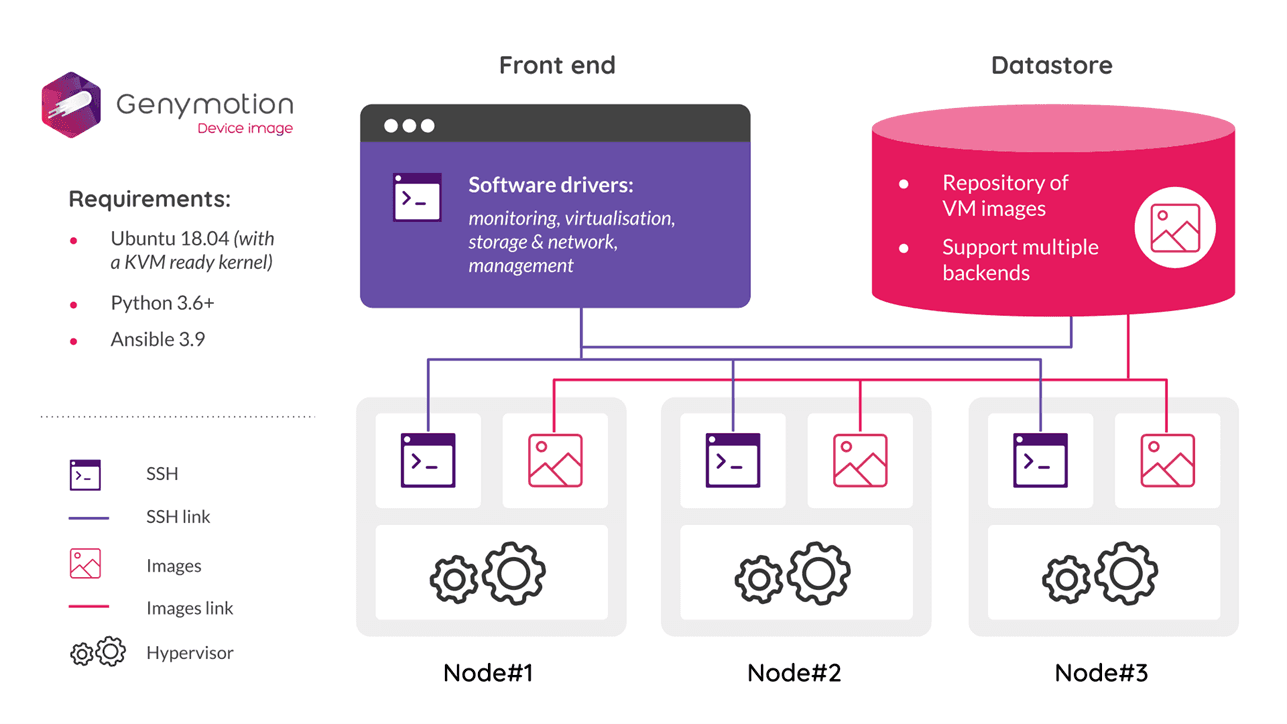
Fig 1: Genymotion Architecture Diagram
Genymotion Use Cases and Android Application Testing
Genymotion virtual devices can feature all manner of common features of mobile platforms from WIFI and Bluetooth interfaces to battery, GPS, and camera devices. This commonality to the physical device makes developing mobile applications and correlating behavior between virtual and mobile platforms comprehensive and repeatable.
In addition, since Genymotion SaaS runs on Ampere Altra platforms in the cloud, there is no need for developers to split their development between an Arm native instance and one developed in the cloud for android emulated platform running on x86 hardware. This is a significant advantage to running on Arm native platforms at both ends of the development cycle and saves both time and money in a developer’s application

Fig. 2: An example of simulating phone call features
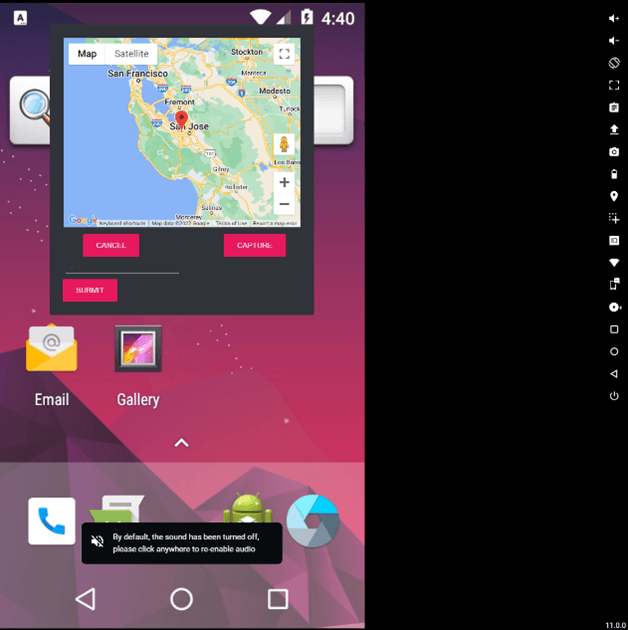
Fig 3: An example of emulating GPU features
Mobile Test Automation
Script your integration tests, regression tests, and more, to run them at every step of your development cycle. Automated testing mitigates the risk of manual error and guarantees that all relevant tests are performed at the right moment.
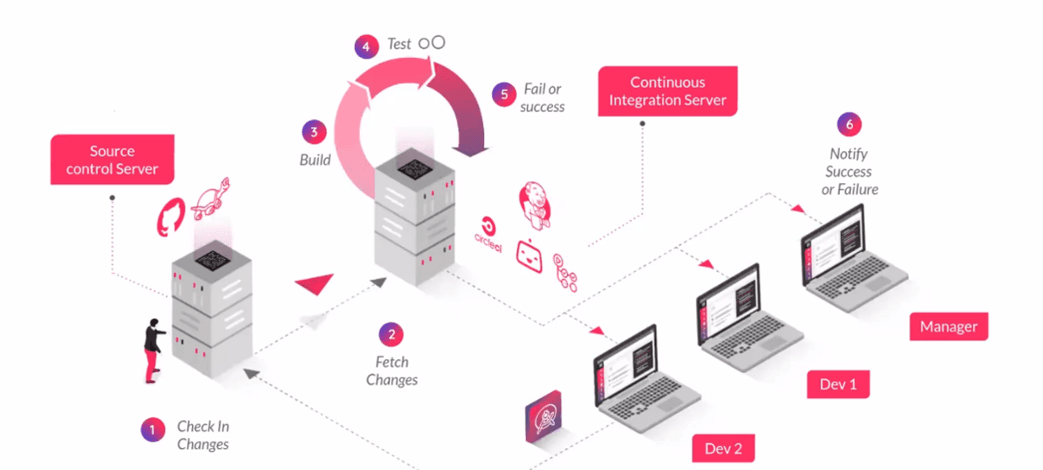
Fig. 4: Continuous integration flow
Deploy Virtual Devices with Android at Scale
This allows Android developers a stable and easy to use instance of a device that can be scaled at will to hundreds of devices for automated testing, continuous integration, and development of the most demanding Android applications.
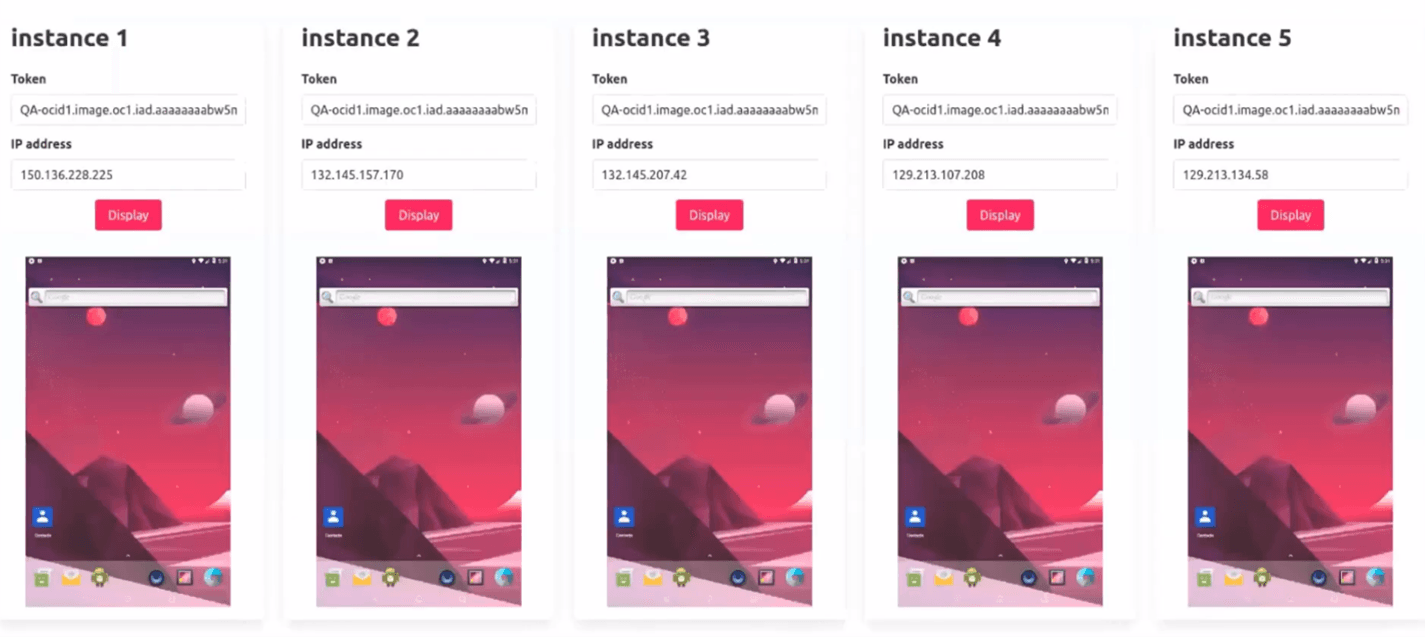
Fig. 5: Rich Web UI allows developers to deploy devices from the console or via APIs
Parallel Testing
Run the same tests on X devices. Tests are faster by running the same tests on X devices concurrently.
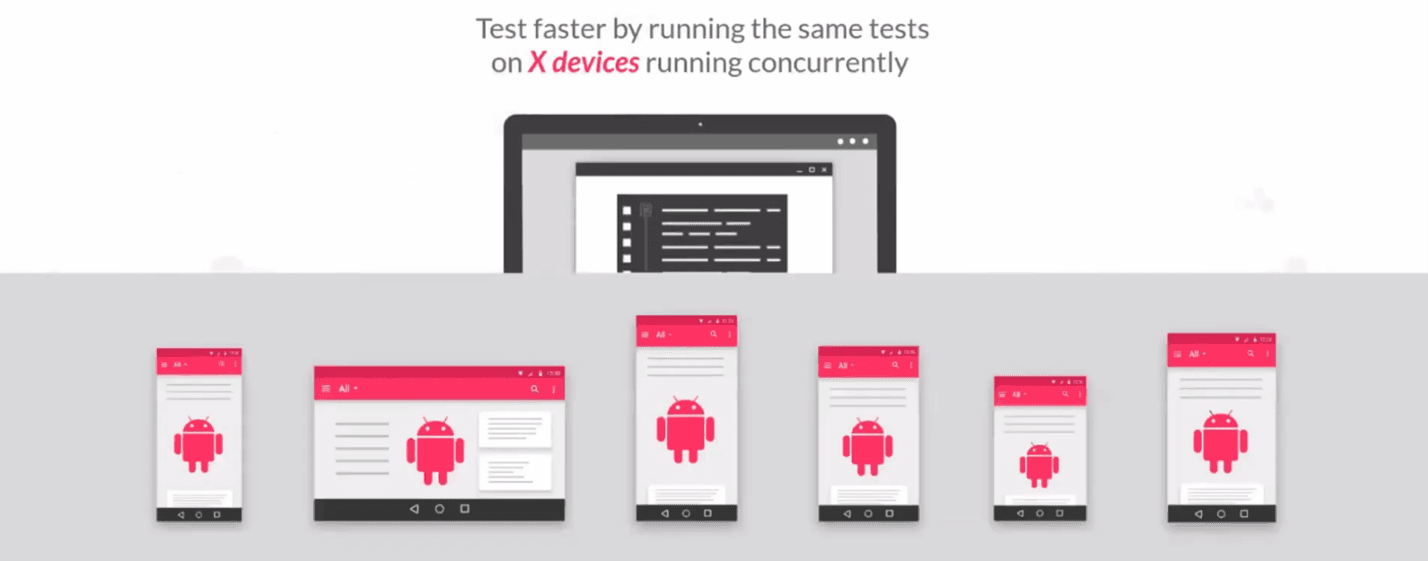
Fig. 6: Parallel testing
Test Sharding
Distribute tests on X devices. Instead of running your tests sequentially, you can split your test cases into different groups. Each shard is then executed in parallel on one or more devices. This is especially helpful when your tests have a large number of test cases.
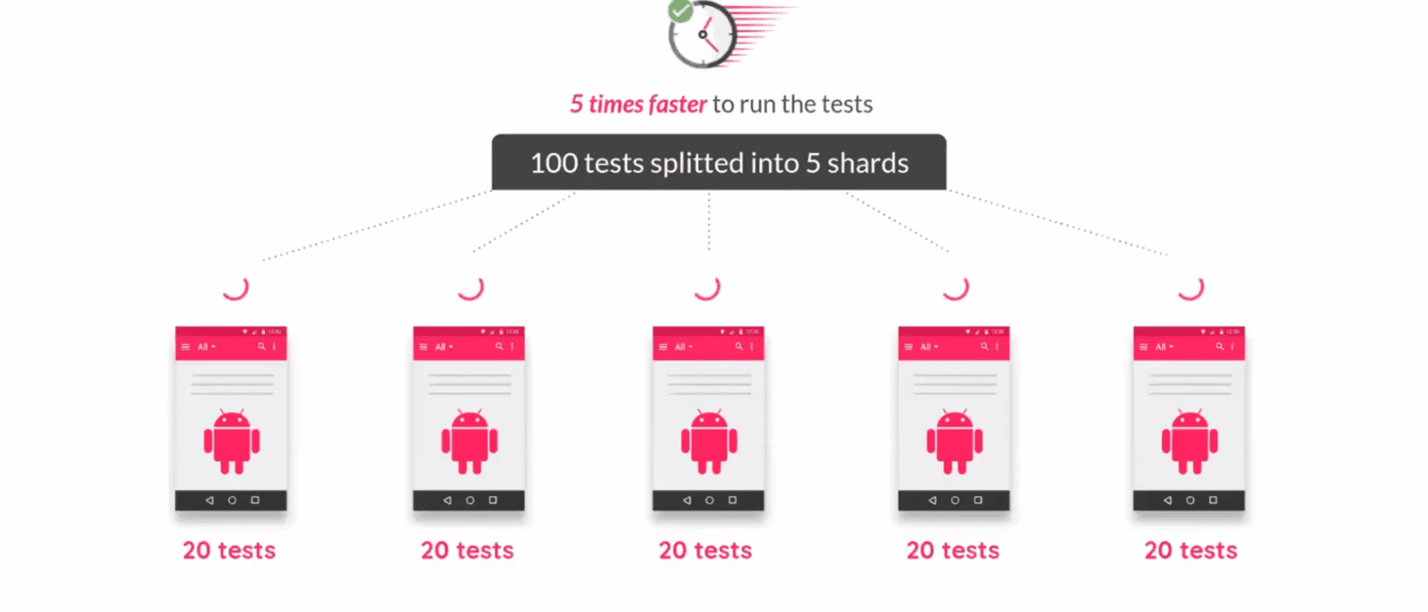
Fig. 7: Test sharding
Mobile Cloud Gaming
Genymotion enables us to use high VD density for mobile cloud gaming.
Benchmarking Results and Conclusions
Fig. 8 show results from an Ampere Altra Max 1P server with 3x Nvidia T4 GPUs running Genymotion software stack. Instances of 3D Android games are GPU rendered and software encoded at 1280x720@30fps. We can achieve a high VD density of 60 VDs – roughly 2 cores per VD and consistent 25-30fps as shown in figure-8, and roughly 80 percent of CPU usages at 60 VDs.
Footnotes
All data and information contained herein is for informational purposes only and Ampere reserves the right to change it without notice. This document may contain technical inaccuracies, omissions and typographical errors, and Ampere is under no obligation to update or correct this information. Ampere makes no representations or warranties of any kind, including but not limited to express or implied guarantees of noninfringement, merchantability, or fitness for a particular purpose, and assumes no liability of any kind. All information is provided “AS IS.” This document is not an offer or a binding commitment by Ampere. Use of the products contemplated herein requires the subsequent negotiation and execution of a definitive agreement or is subject to Ampere’s Terms and Conditions for the Sale of Goods.
System configurations, components, software versions, and testing environments that differ from those used in Ampere’s tests may result in different measurements than those obtained by Ampere.
©2022 Ampere Computing. All Rights Reserved. Ampere, Ampere Computing, Altra and the ‘A’ logo are all registered trademarks or trademarks of Ampere Computing. Arm is a registered trademark of Arm Limited (or its subsidiaries). All other product names used in this publication are for identification purposes only and may be trademarks of their respective companies.
Ampere Computing® / 4655 Great America Parkway, Suite 601 / Santa Clara, CA 95054 / amperecomputing.com
